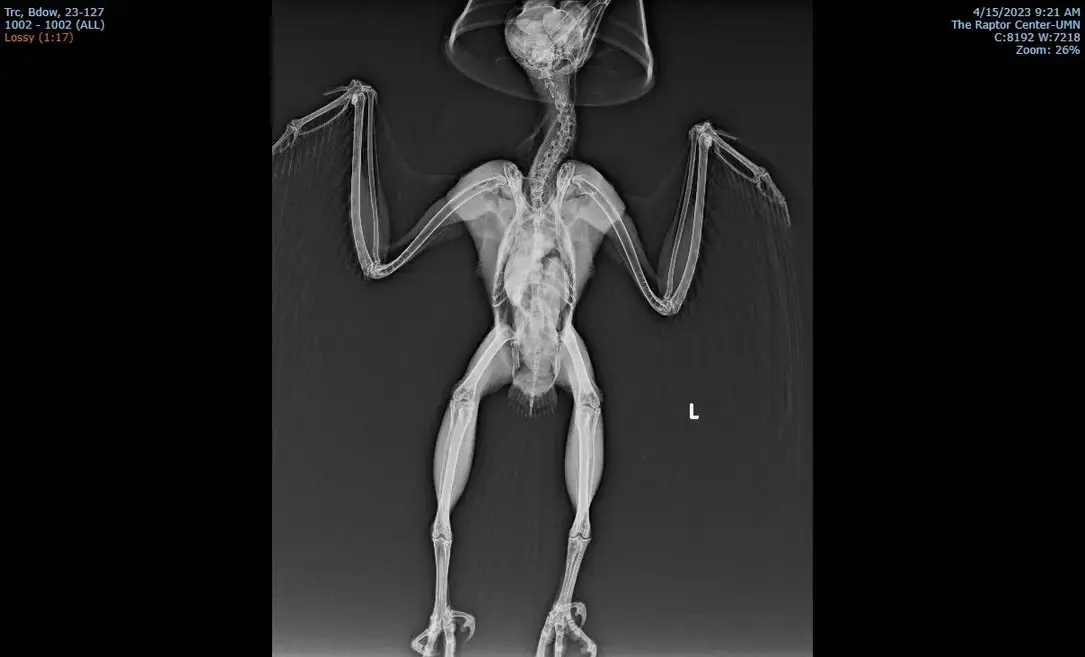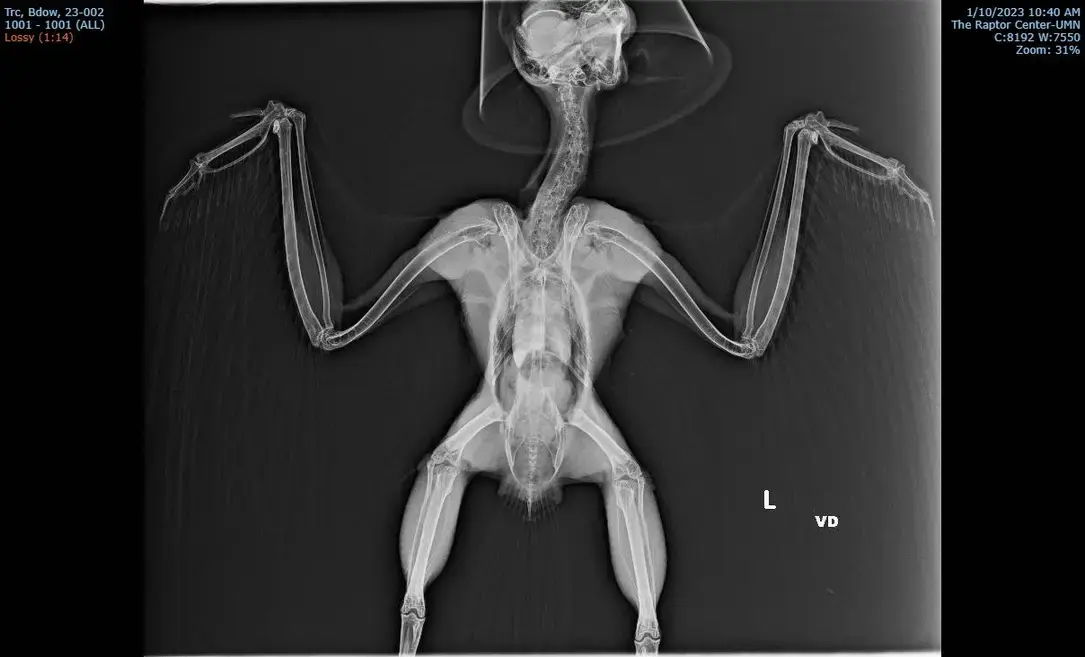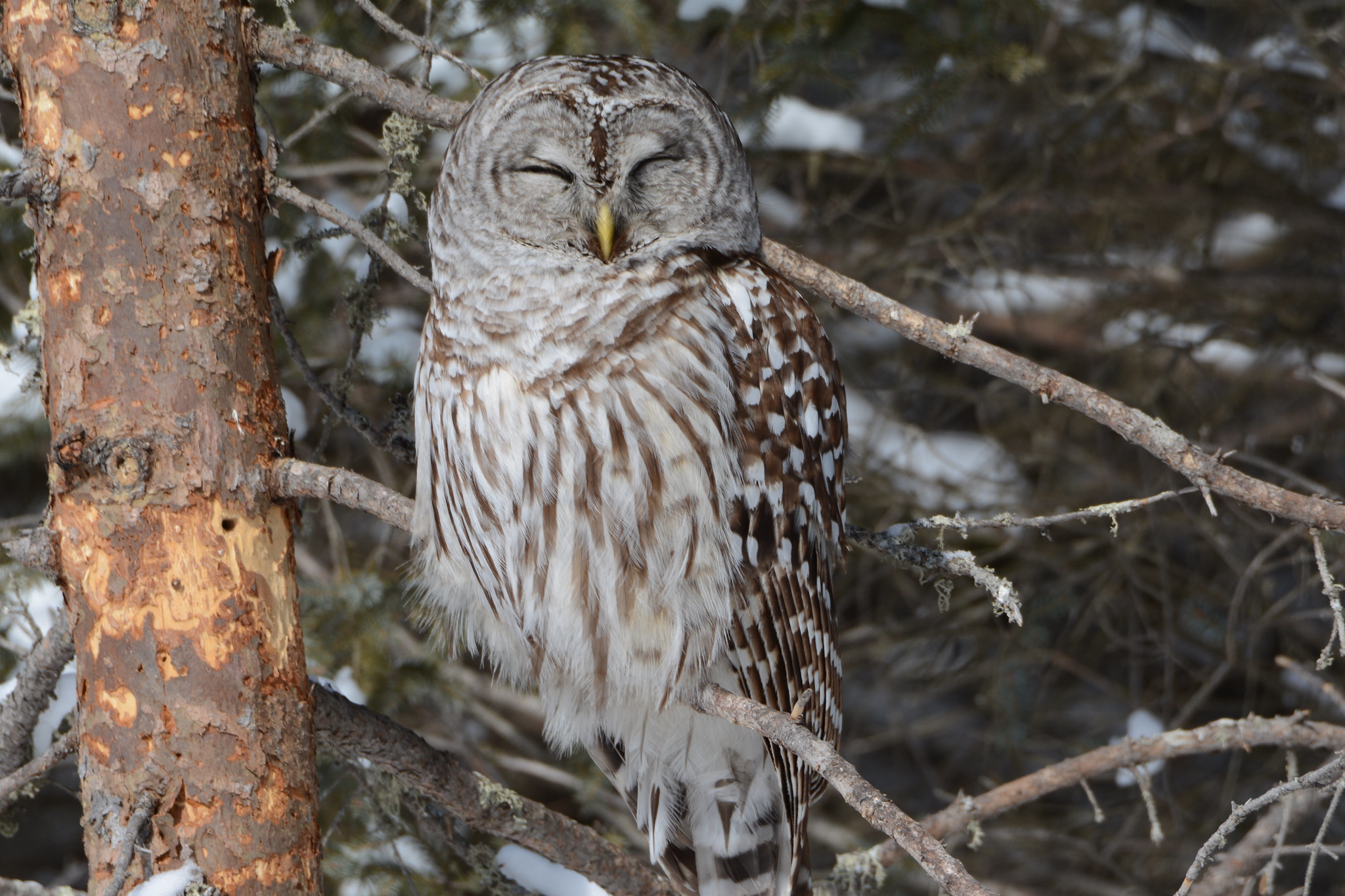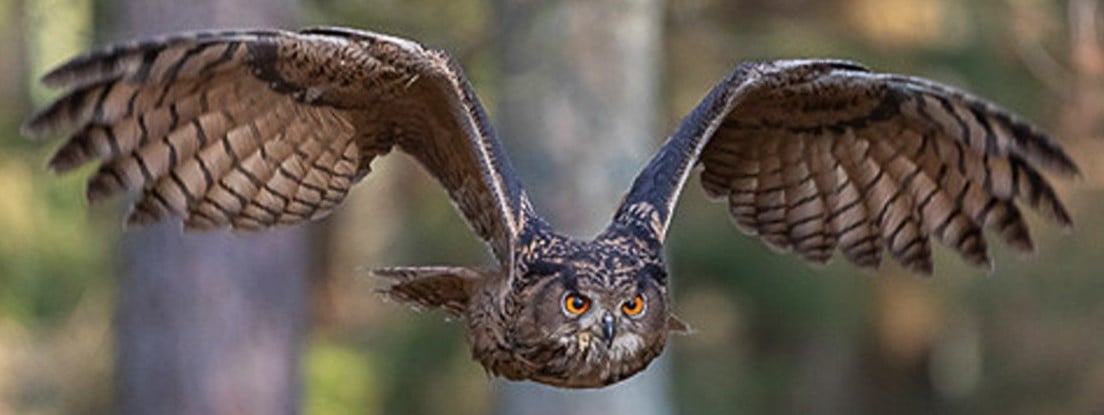Photo from Jeff Wiles
The Raptor Center has been noting some unusual observations. The Barred Owls have been coming in looking more robust than normal. They share some thoughts on it:
From UMN Raptor Center
We want to share some fascinating information we recently discovered about our barred owls patients this past year.
As we reviewed the cases of the unusually high number of barred owls our hospital admitted between November and January, what really caught our attention was the difference in their body condition compared to those admitted during the spring and Summer months.
Typically, during the warmer months, the owls we admit are in prime shape, weighing in with a body condition score of 3-3.5 out of 5. This is our target weight/score for releasing them back into the wild where they belong. However, when winter rolls around, it's a whole new story!
We've noticed that some of our winter arrivals are coming in a bit heavier, scoring around 4-4.5 out of 5 on the body condition scale, and sometimes even hitting a full 5 out of 5! Why, you ask? One theory is that this weight change happens because of differences in food availability and hunting success. In winter, when prey might be harder to find and they need more energy to stay warm, barred owls might eat more when they can and store extra fat which increases their weight. But in summer, when prey is more abundant, they maintain the ideal body condition needed for flight and use energy for activities like establishing and defending a territory, raising young, and hunting for a family. However, how much their weight changes can also depend on individual factors and the environment.
It's truly amazing to witness the adaptability and resilience of these creatures. Every patient we admit shares the gift of data. We're still studying and learning more about their behaviors.
Check out the differences, especially in the shoulders and thighs!
Slim

Chonk



Anesthesia mask. They don't sit still for x-rays otherwise. 😁
That's a Snowy Owl in this pic.
You can see in the Barred Owl x-rays the volume the feathers take up compared to where there is actual bird.